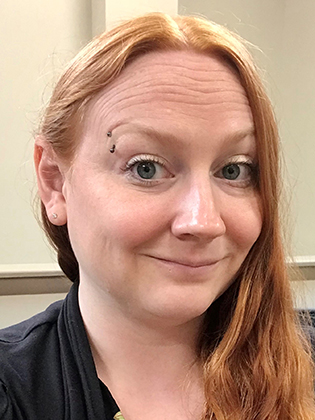
Social Work
Master of Social Work
MSW Degree
With KU’s Master of Social Work, you will be prepared to apply your passion for helping people in a fulfilling career promoting personal, family, and community well-being. If you're browsing for MSW programs in Pennsylvania, look no further. Our MSW degree prepares you for advanced specialized clinical practice and leadership roles in diverse social situations.
The 60 credit (39 credit for advanced standing) MSW program may be completed in a variety of face to face and online formats for full and part-time schedules including an executive schedule design and may be completed in as little as one (full time advanced standing) or two years (full-time traditional).
Social workers provide invaluable service on the front lines of:
- mental health
- substance misuse
- conflict resolution
- advocacy
- community development
Their work environments and areas of specialization range from
- private practice
- health organizations
- schools
- mental health organizations
- children and youth agencies
- nursing homes
- veterans services
- prisons
- substance misuse clinics
- human services agencies

I felt heard, supported, and valued throughout my program.
Jennifer McGlinchey, MSW 2022Working closely with our engaged faculty, you’ll learn the researched and proven ways to solve problems for the greater good. So when you're considering different MSW programs in Pennsylvania, keep in mind that you'll get hands-on learning experience with KU faculty and human service providers. This is to give you experience providing service to persons at risk, intervene with families in crisis, make connections and change the social environment to support the families of today and tomorrow.
The advanced year provides a concentration, developing depth, breadth and specificity in
What are Potential Areas of Specialization with an MSW?
- Child and Family Social Workers support troubled parents, advocate for children’s rights in court, and help youth find homes through adoption.
- Criminal Justice Social Workers assist the incarcerated, ex-offenders, their families, or crime victims to help them move forward.
- Medical Social Workers work in hospitals, homecare, or rehabilitative settings.
- Mental Health and Substance Abuse Social Workers service people with clinical mental health or addiction.
- School Social Workers advocate for the fair and equal treatment of all students and they work to remove barriers and connect families with resources in public and private education settings.
What Can I Do With a Master of Social Work?
- Medical Social Workers
- Mental Health and Substance Abuse Social Worker
- School Social Workers
- Child Welfare
- Human Resources
- Marriage and Family
Student Learning Outcomes






